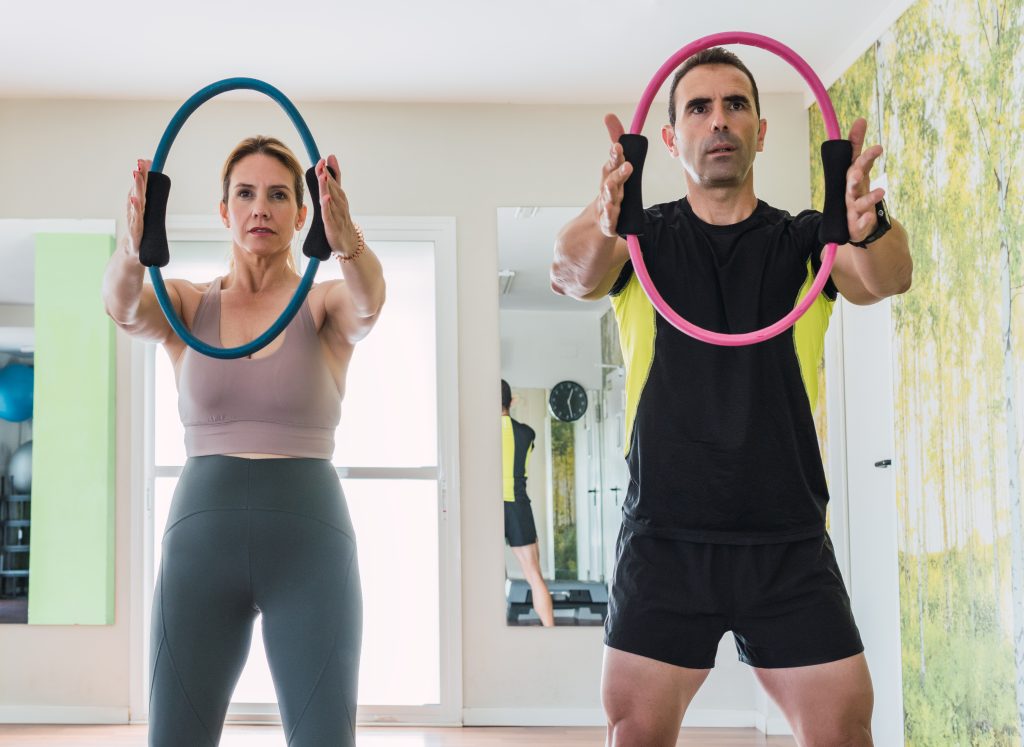In the symphony of life, our immune system plays the role of a silent yet stalwart guardian, defending us against countless invaders daily. From battling seasonal colds to combating more formidable foes like viruses and bacteria, its prowess largely determines our resilience against illness. In recent times, the spotlight on immune health has never been brighter, with people seeking ways to fortify their body’s defenses naturally. Among the myriad strategies, exercise emerges as a potent elixir, not only sculpting our physique but also bolstering the immune system’s armor. Let’s embark on a journey through the realm of fitness, exploring exercise tips that can serve as your shield against illness while enhancing vitality and well-being.
Have you ever pondered the intricacies of the immune system?
We often hear about its paramount importance in safeguarding us against viruses, infections, and diseases. But what exactly comprises this vital system, and just how indispensable is it for our overall well-being? Essentially, the immune system is a complex network composed of cells, organs, tissues, and even reflexes like the cough reflex. Its primary mission is to defend against and limit the impact of infections and various diseases.
Upon detecting an antigen—a foreign or harmful substance such as a virus, toxin, or bacteria—the immune system springs into action, launching an immune response to protect the body by combating the threat. This orchestrated defense mechanism is crucial for maintaining health and vitality.
Research from 2020, as presented in Progress in Cardiovascular Diseases, suggests that the modulation of the immune response associated with exercise is contingent upon various factors. These include the regularity, intensity, duration, and type of effort exerted.
1. Move with Moderation
Just as a delicate balance is a key to harmony in music, moderation is the cornerstone of a sustainable exercise routine. The U.S. Department of Health and Human Services recommends adults engage in at least 150 to 300 minutes of moderate-intensity aerobic activity per week. This can include brisk walking, cycling, or swimming. By adhering to this guideline, you can enhance your immune system’s resilience without overwhelming it.
As outlined in a 2019 research review published in the Journal of Sport and Health Science, engaging in moderate-intensity exercise can boost cellular immunity by enhancing the circulation of immune cells throughout your body. This heightened immune response aids your body in preemptively detecting future infections.
2. Embrace the Power of Resistance
While aerobic exercise steals much of the limelight, resistance training deserves a standing ovation for its contributions to immune health. Incorporating activities like weightlifting, resistance bands, or bodyweight exercises into your regimen not only strengthens muscles but also stimulates the production of white blood cells, the immune system’s frontline soldiers.
Research published in BMJ revealed that individuals engaging in aerobic exercise five or more days per week experienced a reduction of over 40% in the occurrence of upper respiratory tract infections, such as the common cold, over a span of 12 weeks.
3. Prioritize Consistency over Intensity
In the pursuit of fitness, consistency reigns supreme. Rather than sporadic bursts of intense activity, prioritize establishing a regular exercise routine. Consistency not only cultivates discipline but also allows your immune system to adapt and thrive over time, ensuring long-term benefits.
Findings from Science Direct in 2015 indicate that exercise has the capacity to diminish inflammation and regulate the immune response. However, the intensity of the exercise plays a crucial role in this regard.
4. Embrace Outdoor Endeavors
Nature’s embrace holds boundless treasures, including the rejuvenating power of outdoor exercise. Whether it’s a brisk hike amidst verdant landscapes or a refreshing jog along sun-kissed trails, outdoor activities offer a double dose of immune-boosting benefits. Exposure to sunlight stimulates vitamin D production, essential for immune function, while the sights and sounds of nature provide a therapeutic respite for the mind and body.
5. Listen to Your Body’s Symphony
Just as a skilled conductor listens to every note in an orchestra, attuning yourself to your body’s cues is essential during exercise. Pay attention to signals of fatigue, discomfort, or pain, and adjust your intensity accordingly. Over-exertion can suppress immune function, negating the benefits of exercise.
Research published in Frontiers in 2019 on Exercise revealed that following strenuous, high-intensity workouts, there was a significant increase in immune system activity. In essence, the workout served as a stimulus, prompting the immune system to heighten its vigilance and responsiveness.
6. Prioritize Rest and Recovery
Amidst the rhythmic cadence of workouts, never underestimate the restorative power of rest and recovery. Adequate sleep, hydration, and nutrition are the unsung heroes that replenish your body’s resources, ensuring optimal immune function. Make rest an integral part of your exercise symphony, allowing your body to harmonize and thrive.
- Immune System Recovery: Exercise, particularly long or intense workouts, can temporarily stress the immune system and elevate stress hormones such as cortisol. Rest days allow your body to recover from this heightened state of stress.
- Muscle Repair: During exercise, especially strength training, muscles experience microscopic tears, which heal and become stronger. This process consumes a significant amount of energy, including resources from the immune system. Rest days enable your body to redistribute energy resources, ensuring all systems receive adequate support.
- Avoid Overtraining: Excessive exercise can impair the immune system and lead to chronic fatigue. Without sufficient rest and recovery between workouts, the risk of chronic fatigue increases, leaving the immune system vulnerable. Incorporating true rest days focused on recovery helps safeguard the immune system during periods of heightened demand.
Key Takeaway
In the grand orchestration of health and vitality, exercise emerges as a virtuoso, playing a pivotal role in fortifying the body’s immune defenses. By incorporating these exercise tips into your daily routine, you not only sculpt a stronger physique but also cultivate resilience against illness, unlocking the vibrant symphony of well-being. So, let’s lace up our shoes, step into the spotlight, and embark on a journey towards a healthier, more vibrant life, one exercise at a time.











